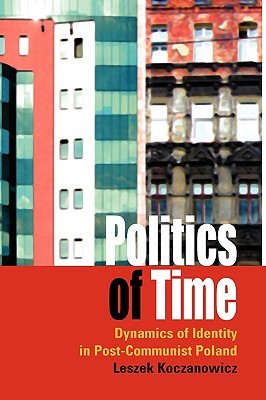
- We will send in 10–14 business days.
- Author: Leszek Koczanowicz
- Publisher: Berghahn Books
- ISBN-10: 184545510X
- ISBN-13: 9781845455101
- Format: 15.6 x 23.4 x 1.3 cm, kieti viršeliai
- Language: English
- SAVE -10% with code: EXTRA
Reviews
Description
What has really happened in Poland since the election of 2005? After such spectacular events as the practice of lustration and the questioning of solidarity with the European Union, one has to ask: what is the nature of this newly emerging society? As with many of the recent developments in former communist countries that seem to be mysterious and irrational, the situation and ensuing problems are complex and the answers neither trivial nor easy. This book, by the distinguished Polish philosopher, addresses these complexities through the role of the communist past in post-communist Poland. It describes the events that led to the collapse of the Solidarity program and the growing influence of the nationalistic and religious parties in the government. The author investigates the nature of social and political temporality and develops a theoretical framework that allows him to apply his conclusions not only to Poland but also to other formerly communist countries.
EXTRA 10 % discount with code: EXTRA
The promotion ends in 23d.22:34:38
The discount code is valid when purchasing from 10 €. Discounts do not stack.
- Author: Leszek Koczanowicz
- Publisher: Berghahn Books
- ISBN-10: 184545510X
- ISBN-13: 9781845455101
- Format: 15.6 x 23.4 x 1.3 cm, kieti viršeliai
- Language: English English
What has really happened in Poland since the election of 2005? After such spectacular events as the practice of lustration and the questioning of solidarity with the European Union, one has to ask: what is the nature of this newly emerging society? As with many of the recent developments in former communist countries that seem to be mysterious and irrational, the situation and ensuing problems are complex and the answers neither trivial nor easy. This book, by the distinguished Polish philosopher, addresses these complexities through the role of the communist past in post-communist Poland. It describes the events that led to the collapse of the Solidarity program and the growing influence of the nationalistic and religious parties in the government. The author investigates the nature of social and political temporality and develops a theoretical framework that allows him to apply his conclusions not only to Poland but also to other formerly communist countries.


Reviews